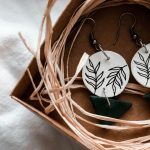Identifying Authentic Sustainable Trends in UK Women’s Fashion
Understanding sustainable fashion starts with recognizing what truly defines a trend as sustainable. In UK women’s fashion trends, authentic sustainability involves eco-friendly style choices that minimize environmental impact throughout the product’s lifecycle—this includes sourcing materials responsibly, ensuring ethical manufacturing, and promoting durability over fast turnover.
Key indicators of genuine sustainability in UK women’s fashion trends are transparency and accountability from brands. Authentic eco-friendly style choices often come with clear information about material origin, production processes, and the social impact on workers involved. Additionally, sustainable fashion promotes timeless designs rather than fleeting fads, encouraging consumers to buy less and choose well-made garments that last.
Additional reading : Unleash your athletic spirit with stunning sport charms
Beware of greenwashing—a common challenge where brands label something as sustainable without backing it up. Greenwashed trends in UK women’s fashion often feature vague or misleading claims and lack tangible evidence of environmental or ethical improvements. Genuine trends, by contrast, embrace measurable goals and certifications to verify their sustainability credentials. Prioritizing these markers helps shoppers make informed eco-friendly style choices and support the true rise of sustainable fashion in the UK.
Current Sustainable Movements in UK Women’s Fashion
Small yet significant shifts shaping the industry
Also read : How Can You Elevate Your Wardrobe with Timeless UK Fashion Pieces?
The UK fashion movements toward sustainability have gained remarkable momentum. Increasingly, designers and brands prioritize eco-conscious practices—from sourcing organic fabrics to adopting circular production methods. This momentum reflects in the rise of influential eco-conscious designers who challenge traditional fast-fashion norms.
Among these pioneers, several UK brands lead the charge by creating stylish, durable, and ethical women’s clothing. Their commitment to reducing waste and carbon footprints resonates deeply with a growing consumer base eager for change. Sustainable style is no longer a niche trend but a mainstream expectation, reshaping design priorities and retail strategies across the industry.
Consumer demand for transparency and responsibility fuels these movements. Shoppers are more informed and willing to support environmentally friendly options despite potential price differences. This shift encourages more brands to embed sustainability at every level—ensuring lasting influence.
Understanding these current UK fashion movements provides insight into the evolving landscape of women’s fashion, where ethical choices meet innovative design.
Practical Tips for Spotting Greenwashing in Fashion
Small text to separate titles
Greenwashing in fashion often involves brands overstating their eco-friendly efforts to appeal to conscious consumers. To avoid falling for this, it’s essential to sharpen your skills in assessing sustainability claims critically. Brands may use vague terms like “eco-friendly” or “natural” without backing them up with concrete data. Be cautious of buzzwords that sound impressive but lack specifics.
Start by asking key questions: Does the brand provide clear evidence of sustainable practices? Are they transparent about the materials, production processes, and supply chain? Research methods such as checking third-party certifications or independent audits can help verify claims. Not all certifications hold equal weight; knowledge about credible labels is vital.
Watch for red flags in brand messaging—like excessive focus on a single green aspect while ignoring overall impact or failure to disclose comprehensive information. Misleading labels, lack of data, and inconsistency between marketing stories and actual practices are common signs of greenwashing. Developing a healthy skepticism combined with informed research will lead to better fashion choices that truly support sustainability.
Choosing Sustainable Fabrics and Materials
Understanding eco-friendly choices for fashion
Selecting eco-friendly fabrics is crucial for making responsible wardrobe decisions. Common sustainable materials in UK women’s fashion include organic cotton, which avoids harmful pesticides; Tencel (lyocell), made from sustainably sourced wood pulp; and hemp, prized for its minimal water needs and durability. Recycled fabrics, such as recycled polyester, also reduce waste by repurposing plastic bottles.
To differentiate genuinely sustainable materials from conventional ones, focus on their production processes. Conventional cotton, for instance, often requires intensive water and pesticide use, while organic varieties prioritize environmental health. The ethical fashion choices you make should look beyond fabric names to manufacturing practices and supply chain transparency.
When shopping, certifications provide reliable guidance. Look for labels like GOTS (Global Organic Textile Standard), which guarantees organic content and socially responsible production, or OEKO-TEX Standard 100, which tests for harmful substances. These certifications help ensure your garment is both environmentally and socially considerate, empowering you to make informed, sustainable purchases confidently.
Practical Guidance for Assessing UK Fashion Brands’ Sustainability
Key steps to shop responsibly
When seeking sustainable UK brands, brand transparency is crucial. Start by examining whether a company openly shares details about its supply chain, including materials sourcing, manufacturing locations, and labor practices. Brands that publish clear, verified sustainability reports demonstrate a commitment to accountability, making it easier for consumers to trust their claims.
Several resources can assist in evaluating UK brands’ sustainability practices. Look for certifications such as B Corp, Fair Trade, or the Global Organic Textile Standard (GOTS). Websites dedicated to ethical fashion often provide up-to-date brand ratings, enabling you to compare options based on environmental impact and ethical criteria.
For confident eco-fashion shopping, consider established names recognized for sustainable initiatives. Brands like Thought and People Tree lead the pack, offering transparent supply chains and eco-friendly materials. Such examples highlight how brand transparency and certification align to create fashion that’s conscientious without sacrificing style.
By using these approaches, shoppers can distinguish truly responsible choices among UK’s fashion offerings, promoting environmental care and ethical production.




